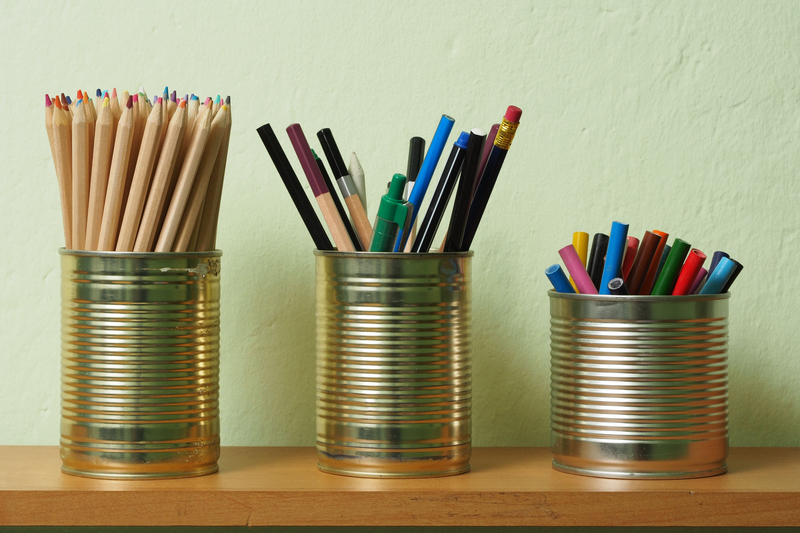Eco-Friendly Tips for Discarding Your PPE Waste Without Harm
The COVID-19 pandemic brought personal protective equipment (PPE) into our daily lives like never before. While PPE helps shield us from viruses and bacteria, improper disposal of masks, gloves, and face shields is causing a serious environmental challenge. Single-use PPE waste is piling up in landfills, littering our streets, and threatening wildlife in waterways and on land. Now, more than ever, adopting eco-friendly PPE disposal methods is essential to protect the planet.
This comprehensive article will provide you with the latest eco-friendly tips for discarding your PPE waste without harming the environment. We'll cover the environmental impact, responsible disposal techniques, sustainable alternatives, and community action steps to ensure we safeguard both human and environmental health. Whether you're an individual, a business, or a community leader, these practices can help you make a positive difference.
Understanding PPE Waste and Its Environmental Impact
PPE, such as masks, gloves, face shields, and gowns, is often made from plastic-based materials like polypropylene, polyethylene, and nitrile. While these items are indispensable for infection prevention, their environmental consequences have become increasingly evident.
- Non-biodegradable: Standard PPE materials can take hundreds of years to break down in landfills.
- Microplastic pollution: Over time, discarded PPE breaks down into microplastics, contaminating soil, rivers, and oceans.
- Wildlife hazard: Animals often mistake PPE for food or become entangled in it, leading to fatal injuries.
- Resource depletion: Producing single-use PPE consumes vast amounts of non-renewable resources, worsening the planet's footprint.
Understanding the environmental footprint of PPE waste is the first step to taking meaningful action.

General Principles for Eco-Friendly PPE Waste Disposal
Before you dispose of any personal protective equipment, ask yourself: "Is it necessary to use single-use PPE in this situation?" Reducing unnecessary consumption is the most effective way to minimize waste. If PPE is necessary, always follow these best practices for safe and sustainable disposal:
- Never litter PPE: Discarding PPE in public spaces or natural environments creates a hazard for people and wildlife.
- Don't flush PPE: Never flush masks, gloves, or wipes down the toilet. They can block pipes and harm aquatic ecosystems.
- Use designated bins: Always look for PPE-specific waste bins or general waste bins.
- Consider segregation: Separate PPE waste from recyclables to avoid contamination.
- Avoid burning PPE at home: Burning plastic-based PPE can release toxic fumes and contribute to air pollution.
These simple yet crucial steps lay the foundation for more advanced eco-friendly practices.
Best Eco-Friendly Tips for Disposing of PPE Waste
1. Opt for Reusable and Sustainable PPE Options When Possible
While recycling and proper disposal are vital, reducing the use of single-use PPE is the best eco-friendly solution. Choose reusable masks made from fabric, washable gloves, or biodegradable alternatives where appropriate (such as for non-medical settings). This significantly cuts down the amount of PPE waste generated at the source.
- Switch to cloth masks: For non-medical purposes, opt for multiple-layered, washable fabric masks.
- Look for biodegradable materials: Some companies now offer plant-based face masks and compostable gloves.
- Disinfect and reuse: For reusable PPE, always follow recommended cleaning and sanitizing guidelines.
2. Proper Collection and Containment
Before discarding used PPE, ensure it is properly contained to prevent accidental spreading of pathogens and protect waste handlers.
- Seal used gloves and masks in a bag before placing them in the bin.
- Do not mix with recyclables unless specified by local recycling guidelines.
- Use labeled PPE disposal bins where available.
3. Participate in PPE Recycling Initiatives
Many regions now offer specialized recycling programs for PPE waste. These are designed to recover plastics and safely repurpose them, minimizing landfill and pollution impacts.
- Check for local PPE recycling programs: Research government or private recycling points that accept PPE.
- Use mail-back recycling: Some companies provide mail-back envelopes for masks and gloves, which are then processed safely.
- Support innovations: Back companies and organizations developing biodegradable and recyclable PPE technologies.
Remember: Never place used PPE in curbside recycling bins unless your waste management provider explicitly allows it.
4. Safe Disposal for Households
Follow these practical steps to dispose of PPE in a way that is safe for both humans and the environment:
- Wash your hands before and after handling used PPE.
- Place used PPE in a biodegradable or paper bag if possible, or double-bag it if dealing with suspected contamination.
- Dispose of the bag in a general waste bin (not recycling).
- Regularly clean and disinfect bins where PPE waste is stored.
For eco-conscious households, encourage all family members to switch to reusable masks and gloves where health regulations allow.
5. Workplace and Community PPE Waste Management
Organizations generate significant PPE waste and must take extra care to dispose of it responsibly.
- Set up PPE collection stations in high-traffic areas, clearly labeled and regularly emptied.
- Train staff on proper PPE disposal practices and eco-friendly alternatives.
- Partner with certified recyclers or waste handlers who specialize in PPE processing.
- Audit PPE consumption to identify reduction opportunities and promote sustainable procurement.
6. Proper Disposal at Healthcare Facilities
Hospitals and clinics are among the largest sources of PPE waste. They must adhere to strict protocols:
- Always segregate infectious PPE from general and recyclable waste.
- Use color-coded bins and bags (as per local health authority guidelines).
- Employ autoclaving or incineration methods (at approved facilities) to neutralize biological threats while minimizing emissions.
- Implement staff training and frequent audits to ensure compliance and sustainability.
7. Dispose Responsibly While Outdoors
If you need to change or discard PPE while outside, carry a small, resealable bag with you.
- Store used PPE in the bag until you find a proper waste bin.
- Never leave PPE in parks, beaches, or trails - it can harm wildlife and ecosystems.
- Encourage others to do the same by setting an example and spreading awareness.
What Not To Do With PPE Waste
Improper disposal of PPE is dangerous for public health and the environment. Here's what you should avoid at all costs:
- Never toss PPE in recycling bins (unless programs specifically accept them)
- Never burn PPE at home - plastic fumes are toxic
- Never flush PPE down toilets or drains
- Never leave PPE waste exposed or uncontained
- Never reuse single-use PPE without proper decontamination (and only where allowed)
These mistakes can cause harm far beyond your household or workplace, so always err on the side of caution.
Innovative & Sustainable Alternatives to Single-Use PPE
Embracing innovation can dramatically cut down society's PPE waste footprint:
- Biodegradable masks and gloves: Made from natural fibers such as bamboo or PLA (polylactic acid), these break down much faster than conventional plastics.
- Antimicrobial fabric masks: Designed for long-term use with bacteria-resistant coatings.
- Eco-certified PPE: Look for products with certifications such as ASTM D6400 for compostability or relevant eco-labels.
- Reusable face shields: Made from durable plastics easily cleaned and reintegrated into use.
Check with local health regulations to ensure these alternatives meet safety requirements for your specific use-case.
Community Action and Advocacy for Eco-Friendly PPE Waste Management
Individuals can make a huge impact, but systemic change requires broader community engagement and advocacy. Here's how you can get involved:
- Organize clean-up drives to collect improperly discarded PPE from public spaces.
- Liaise with local authorities to install PPE-only bins and increase waste management capacity.
- Educate others about the environmental risks of poor PPE disposal by hosting workshops or sharing informational flyers.
- Support local and global initiatives working to create sustainable PPE solutions and policies.
By starting small and building momentum, communities can effectively manage PPE waste in a safe and eco-friendly way.

Key Takeaways & Final Thoughts
With proper planning, awareness, and action, it's possible to discard PPE waste in a way that protects both people and the planet. Here's a quick recap:
- Reduce single-use PPE where possible - choose reusable and biodegradable options
- Dispose of PPE responsibly - never litter or contaminate recyclables
- Use designated disposal points and participate in recycling programs
- Engage with your community for wider impact
- Stay informed on new eco-friendly PPE options and disposal initiatives
Eco-friendly PPE waste disposal is an urgent priority for a cleaner, healthier future. By following these guidelines and spreading awareness, we all play a crucial role in preserving our environment--one mask, glove, and step at a time.
Frequently Asked Questions
- Can masks and gloves be recycled in ordinary bins?
No. Most standard PPE cannot be processed in household recycling facilities and may disrupt recycling operations. Use specialized programs where available. - Are biodegradable masks as effective as conventional masks?
Biodegradable masks are effective for general use, but check that they meet the safety standards for your application, especially in medical or high-risk environments. - What if there are no PPE recycling facilities in my area?
Always contain, bag, and discard PPE in general waste. Encourage local policymakers to introduce eco-friendly PPE waste solutions and join community initiatives to raise demand for better waste management.
References & Resources
- World Health Organization (WHO): PPE Waste Management Guidance
- US Environmental Protection Agency (EPA): COVID-19 and Waste
- United Nations Environment Programme (UNEP): Managing COVID-19 Waste
- Centers for Disease Control and Prevention (CDC): Guidance on PPE Use
For more eco-friendly living tips, visit your local environmental agency or explore global resources tailored to your region.
